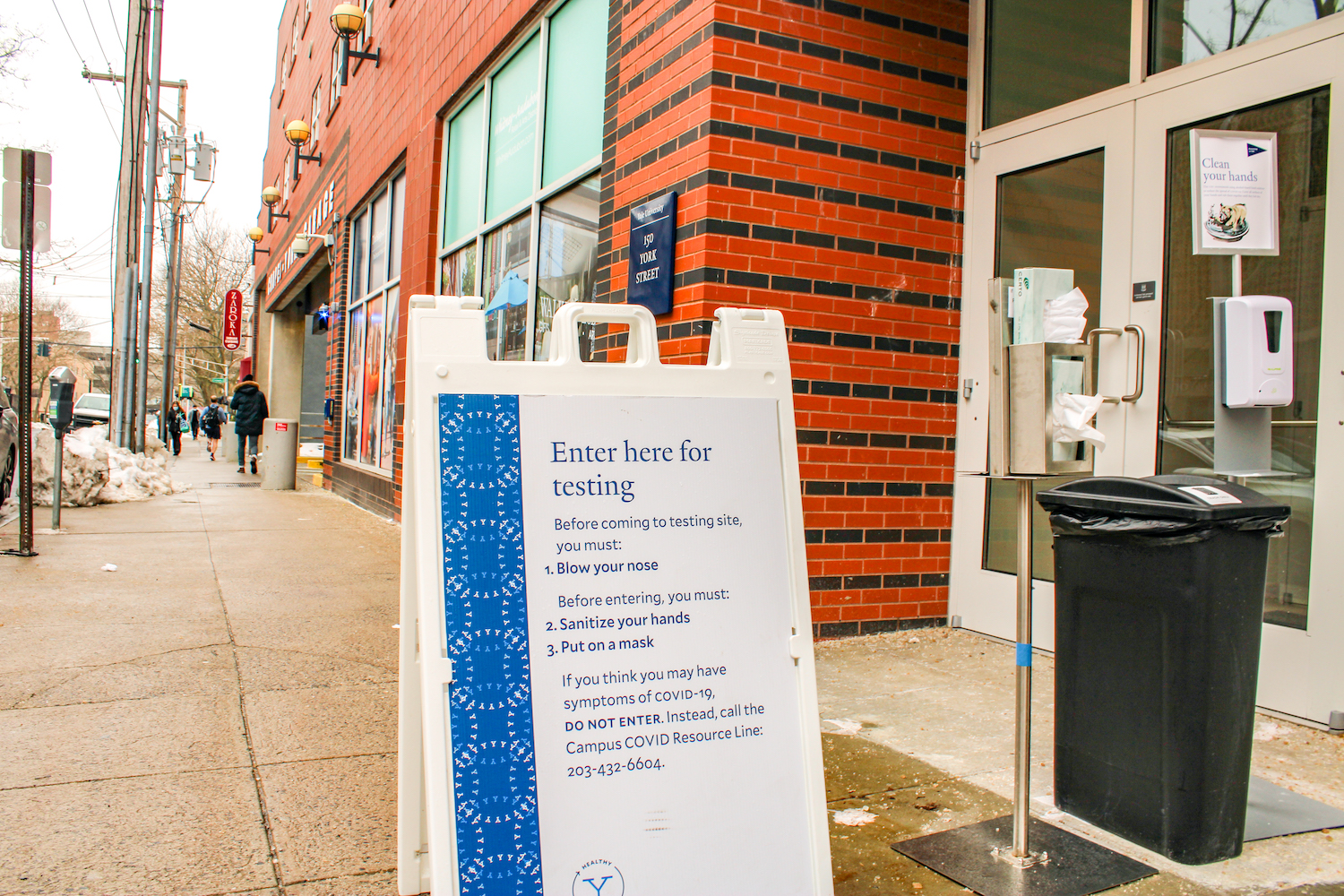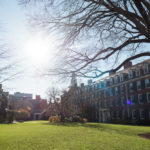More undergraduate COVID-19 cases reported in past week than any other week this semester; B.1.1.7 variant identified in Yale community

Jessie Cheung, Staff Photographer
Though Gov. Ned Lamont’s new vaccine policy means students may be eligible for COVID-19 vaccines starting in early April, a recent spike in COVID-19 cases indicates that Yalies are not yet out of the woods.
Since March 12, there have been 44 new positive cases of COVID-19 at Yale, 21 of which are undergraduate students in New Haven both on and off campus — the highest positivity rate since the start of the spring semester.
There were six and eight positive tests among off-campus undergraduates on March 15 and March 16, respectively, which was the first time there were more than two positive tests in one day among students in that group since Feb. 16. There were no positive tests on March 15 and March 16 among on-campus undergraduates.
Yale Health Chief Quality Officer Madeline Wilson wrote in an email to the News that some cases are connected — due to students living together, socializing together and dining at restaurants. Wilson wrote that the recent cases “also include leave-of-absence and remotely enrolled students.” According to Wilson, the University is addressing the current spike as a “series of clusters,” and contact tracing is underway. She did not comment on whether the uptick will affect a vaccine timeline but urged students to adhere to ongoing precautionary measures.
Dean of Yale College Marvin Chun wrote in a Thursday email to students enrolled in residence that the University’s contact tracing system has responded to “clusters of potential infection.”
“More undergraduates have tested positive in the past week than at any time since move-in, the more infectious B.1.1.7 variant has been identified in our community, and cases continue to appear stochastically, with limited and sometimes no predictability,” Chun’s email reads.
The B.1.1.7 variant, also known as the U.K. variant, is a more transmissible strain of the virus. According to the Centers for Disease Control, the presence of this variant “warrants universal and increased compliance with mitigation strategies, including distancing and masking.”
According to Wilson, the University will not be treating cases of the B.1.1.7 variant differently and that the same isolation and quarantine requirements apply. Wilson added that existing precautions “work extremely well, even for variants.”
Still, Wilson wrote that “the risk of a variant case spreading to a contact is 20-40% higher than it would be for someone exposed to a non-variant case, hence more secondary cases for every case.”
As of March 16, three days before midterm, there have been a total of 271 positive cases of COVID-19 on campus, according to the University’s COVID-19 dashboard. This figure is more than four times that from the corresponding period last semester — Aug. 22 to Oct. 20 — during which there were 67 cumulative positive cases.
Yale has not changed its alert level amid the uptick in cases. The University remains in the same orange alert level, which denotes “moderate risk,” that it has been in since November. According to the University’s COVID-19 website, an orange alert level indicates that case numbers seem to be on the rise, and that students may expect targeted quarantine for clusters of infection, potential uptick in COVID testing, a prohibition on gatherings of any kind or a shift of all classes to online formats, among other restrictions. As of March 18, none of these additional restrictions have been implemented.
“It is crucial that you keep up those good habits, even with the temptations of spring and the fatigue that has come with so much consistency,” Chun wrote in his email, urging students to adhere to public health guidelines. He also highlighted in his email the importance of being honest with contact tracers.
Connecticut residents aged 16 or older may be eligible to take the COVID-19 vaccine by April 5.
Julia Bialek contributed reporting.
Jordan Fitzgerald | jordan.fitzgerald@yale.edu
Update, March 19, 1:50 p.m.: The story has been updated to include comment from Wilson, who said the cases were connected and that the University does not plan to treat cases of the B.1.1.7 variant differently. Additionally, Wilson clarified that the cases did not include only students enrolled in-residence but also students on leaves of absence or enrolled remotely in New Haven.








